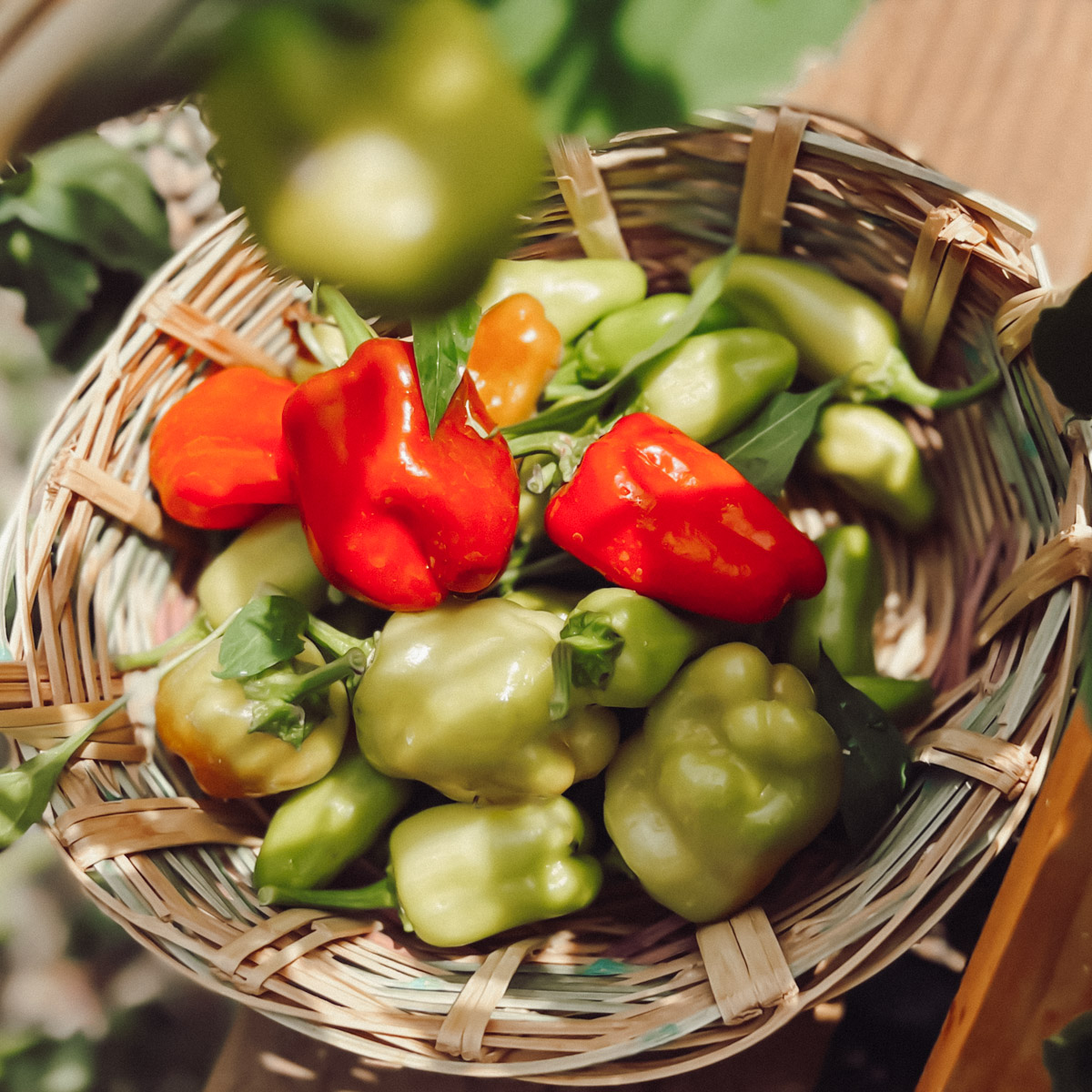Organic Vs. Synthetic Fertilizers: Which Is Best for Nurturing Healthy And Balanced Pepper Plants?
In the world of nurturing healthy pepper plants, the choice between artificial and organic plant foods stands as an essential decision with far-ranging ramifications. While both choices purpose to supply essential nutrients to support plant growth, the subtleties of their influence on the soil, plant health, and the setting trigger a dispute that echoes throughout the gardening community. Comprehending the distinct benefits and prospective mistakes of each fertilizer kind is important for pepper growers looking for to maximize their returns while maintaining a sustainable and eco-conscious method.
Benefits of Organic Fertilizers
Organic plant foods offer an environmentally-friendly and lasting strategy to beneficial pepper plants, giving essential nutrients without making use of artificial chemicals. These natural plant foods are obtained from organic resources such as compost, manure, bone dish, and seaweed, advertising dirt health and wellness and biodiversity. Unlike artificial fertilizers, natural choices launch nutrients slowly, making sure a stable and balanced supply for pepper plants to flourish.
One significant advantage of natural fertilizers is their capacity to improve dirt structure and water retention. By boosting dirt health, organic fertilizers promote valuable microbial task, which helps in nutrient uptake by pepper plants. In addition, organic fertilizers minimize the threat of chemical run-off, protecting water sources from contamination and securing the environment.
Additionally, natural plant foods add to long-term soil fertility by advertising the growth of advantageous soil microorganisms. These microorganisms aid damage down raw material, releasing nutrients in a type that is quickly obtainable to pepper plants. best fertilizers for peppers. By fostering a healthy soil environment, natural plant foods sustain lasting pepper farming practices that benefit both plants and the environment
Disadvantages of Artificial Plant Foods
Artificial plant foods, in contrast to their organic counterparts, posture numerous negative aspects when made use of to nurture pepper plants, affecting both plant health and environmental sustainability. One major disadvantage of synthetic plant foods is their propensity to seep nutrients from the dirt swiftly.
Additionally, the overuse of synthetic plant foods can add to water pollution. Excess plant foods not taken in by plants can remove right into water bodies, leading to eutrophication, where algae blooms diminish oxygen levels in the water, harming water life. Additionally, artificial fertilizers are generally stemmed from non-renewable sources, such as nonrenewable fuel sources, adding to carbon discharges and environmental destruction during their manufacturing.
Nutrient Absorption Comparison
Reliable nutrient absorption plays a critical role in the total health and growth of pepper plants. When contrasting organic and synthetic plant foods in regards to nutrient absorption, organic fertilizers have the benefit of providing a much more well balanced and slow-release source of nutrients (best fertilizers for peppers). Organic fertilizers contain a range of macro and trace elements that are not only helpful for the plants however additionally advertise healthy dirt microbial task, which helps in nutrient uptake. On the various other hand, artificial fertilizers commonly provide a quick launch of nutrients, which can bring about leaching and overflow, causing lower nutrient absorption rates by the plants.
Additionally, natural plant foods boost dirt framework and water retention ability, permitting pepper plants to accessibility nutrients extra successfully. This better dirt top quality facilitates root advancement, allowing much better nutrient absorption. Synthetic fertilizers, although initially boosting plant development check here as a result of their high nutrient focus, might impede long-term nutrient absorption by derogatory dirt health in time.
Ecological Influence Factors To Consider

On the various other hand, synthetic plant foods, although usually even more immediately readily available and concentrated to plants, can have detrimental results on the atmosphere if not used appropriately (best fertilizers for peppers). Their production calls for high energy inputs, leading to greenhouse gas emissions and adding to environment change. Additionally, the runoff of excess artificial fertilizers can infect water sources, causing eutrophication and harming marine environments.
Ideal Fertilizer Practices for Peppers
When feeding pepper plants, maximizing nutrient uptake and minimizing ecological impact are essential factors to consider. To attain this, it is vital you can check here to comply with finest fertilizer methods customized to the details demands of pepper plants. One crucial method is to do a soil test before applying any type of fertilizers. This examination can establish the pH degree of the dirt and determine any type of nutrient shortages, directing you in selecting the most appropriate fertilizer formula.
One more essential practice is to fertilize pepper plants at the correct time. Usually, peppers profit from getting fertilizer at planting and afterwards once again when they start to flower. Over-fertilizing can bring about nutrient inequalities and damage the plants, so it is crucial to comply with suggested application rates.
Additionally, picking a balanced plant food with an NPK ratio that matches pepper plants' demands is basic. Eventually, incorporating synthetic and natural fertilizers deliberately can help support healthy pepper plants while decreasing environmental influence.
Final Thought

Organic fertilizers supply an environmentally-friendly and lasting approach to nourishing pepper plants, supplying important nutrients without the usage of synthetic chemicals. Unlike synthetic plant foods, organic alternatives launch nutrients slowly, making sure a steady and balanced supply for pepper plants to flourish.
Artificial fertilizers, in contrast to their organic equivalents, pose various downsides when made use of to nourish pepper plants, influencing both plant health and wellness and ecological sustainability. When comparing artificial and organic fertilizers in terms of nutrient absorption, natural plant foods have the benefit of giving a more well balanced and slow-release resource of nutrients.Furthermore, organic plant foods enhance soil structure and water retention ability, enabling pepper plants to gain access to nutrients a lot more efficiently.